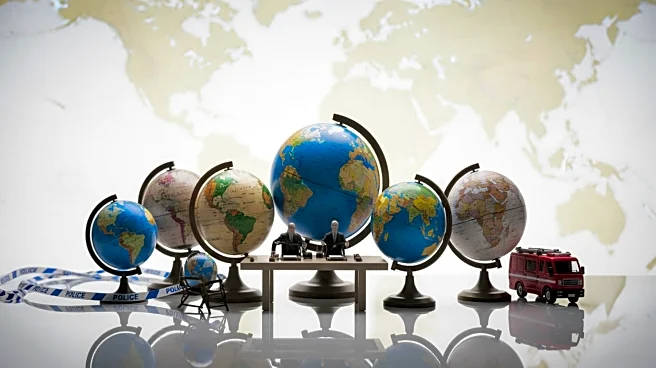What's Happening?
The United Kingdom's Trade Envoy programme, initiated in 2012, has grown to include 28 envoys covering 74 markets across six continents. These envoys, appointed by the Prime Minister, are parliamentarians
tasked with supporting the government's international trade and investment efforts. The programme aims to enhance the UK's trade strategies and attract foreign direct investment. Envoys engage with host governments, lead trade delegations, and lobby on market access issues, complementing the work of ambassadors and trade commissioners. The programme was renamed in 2025 to align with other government envoy roles, reflecting their duties in representing the UK.
Why It's Important?
The expansion of the Trade Envoy programme is significant for the UK's economic strategy, as it aims to strengthen international trade relations and attract investment. By covering a wide range of markets, the envoys play a crucial role in supporting the UK's growth priorities and industrial strategies. This initiative helps the UK maintain its competitive edge in global trade, potentially leading to increased economic opportunities and job creation. The programme also fosters diplomatic relations, enhancing the UK's influence in international markets.
What's Next?
The envoys will continue to build relationships with host governments and UK businesses, focusing on substantial trade opportunities. Their efforts are expected to support the Department for Business and Trade's priorities, contributing to the UK's economic growth. As the programme evolves, it may see further expansion or restructuring to address emerging global trade challenges and opportunities.
Beyond the Headlines
The programme's voluntary and unpaid nature highlights the UK's commitment to fostering international trade without direct financial incentives for envoys. This approach may encourage a focus on long-term diplomatic and economic benefits rather than short-term gains. The envoys' cross-party membership also underscores the UK's unified approach to international trade, potentially reducing political bias in trade negotiations.










